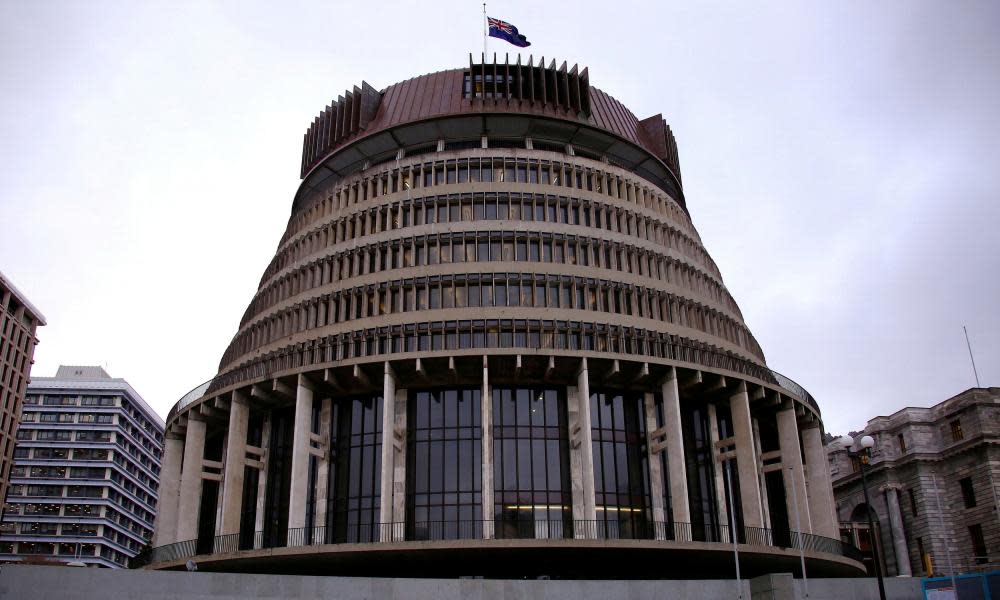Vested interests in New Zealand politics are too big to ignore – we need a Royal Commission

When two of the three biggest political parties in parliament are being investigated by the Serious Fraud Office you know you have a problem.
Despite New Zealand recently being declared as the least corrupt country on earth, repeated donations and lobbying scandals would suggest that – like our “100% pure” tourism marketing slogan – this may be something of a fiction, albeit one enthusiastically touted by authorities to prove we don’t have a problem.
Vested interests in New Zealand politics are now too big to hide or ignore. Over the last two decades, the country has seen political donation and election spending scandals come and go on a regular basis. They’ve involved every party and are clearly systemic.
Lobbying is a particular problem in New Zealand, with a revolving door arrangement between government and lobbyists that is illegal in comparable countries. We have professional lobbyists employed to help run the government and ministerial offices, and senior government staff moving from negotiating coalition agreements one week to heading up lobbying firms the next.
Related: 'I'm over it': will disillusioned voters spell trouble for Jacinda Ardern?
This week, former NZ First MP Doug Woolerton, who is a key confidant of Deputy prime minister Winston Peters, was alleged to be operating a fundraising mechanism for his party, while at the same time running a firm that lobbies politicians on behalf of some of those same wealthy donors.
Woolerton’s NZ First Foundation is now formally under investigation by the Serious Fraud Office for allegedly manipulating donations in order to circumvent donation declaration laws. This is proving to be a political nightmare for Prime Minister Jacinda Ardern, as almost daily revelations about her coalition partner and deputy PM surface in the media.
On Tuesday, the NZ First leader Winston Peters responded to the announcement saying: “We want the truth to be out there, not a whole lot of false allegations.”
The National Party has its own problems with the Serious Fraud Office, with four people recently charged in relation to donations made to the party. This week we learned the charges relate to two large donations of $100,000 and $100,050 that were allegedly split into smaller amounts not required to be publicly declared. National has responded by pointing out that none of the four individuals being charged are MPs or party office-holders.
Whatever the truth of the allegations, the bigger impact of these scandals is to bring New Zealand’s electoral process into disrepute. This is a good thing. New Zealand has been complacent about the question of corruption for too long, helped along by regularly featuring at the top of Transparency International’s annual Corruption Perception Index.
The public doesn’t entirely buy the corruption-free status. A survey commissioned last year by Victoria University of Wellington found that 34% believed that “corruption is widespread throughout the government in New Zealand”. While perhaps low by international standards, it’s worth noting that a similar survey question from six years earlier, had only 24% agreeing with this. Last year’s survey also found 71% had either no or very little confidence in how political parties are funded.
New Zealanders are right to be suspicious of the influence of wealthy and vested interests. After all, time and again governments make decisions geared towards the type of people and organisations who fund our parties.
Is it any surprise, for example, that successive governments refuse to fix the taxation system, the housing affordability crisis, or deal adequately with a moribund welfare state when the wealthy exert such financial power over our politicians?
Politicians themselves cannot be trusted to fix the problem. Self-interest typically characterises their reforms, regardless of which party is driving them.
There will be a temptation to make changes in haste, as the government did late last year, bringing in new laws which were meant to ban foreign donations, but were universally panned as ineffective.
There is merit in tightening up donations rules and lowering thresholds for donation disclosure. But ultimately, the problems of money and politics are far bigger than such tweaks allow for. Our whole parliamentary and political system is deficient, especially when it comes to how political parties operate. Parties were once mass membership organisations that engaged, organised and fundraised on a grassroots level. Nowadays they are largely empty shells, presided over by elite professional staff and career politicians. It’s a recipe for vested interest to dominate, and they do.
In the 1980s when a crisis of confidence was developing about the old First-Past-the-Post electoral system, the Labour Government of the time did the right thing by establishing The Royal Commission on the Electoral System. This made the case for our MMP system, which was eventually adopted by voters in a referendum.
It’s time for a new Royal Commission to take the problems of vested interests in politics out of the hands of politicians and come up with a fundamental rethink of how to deal with money in politics.


